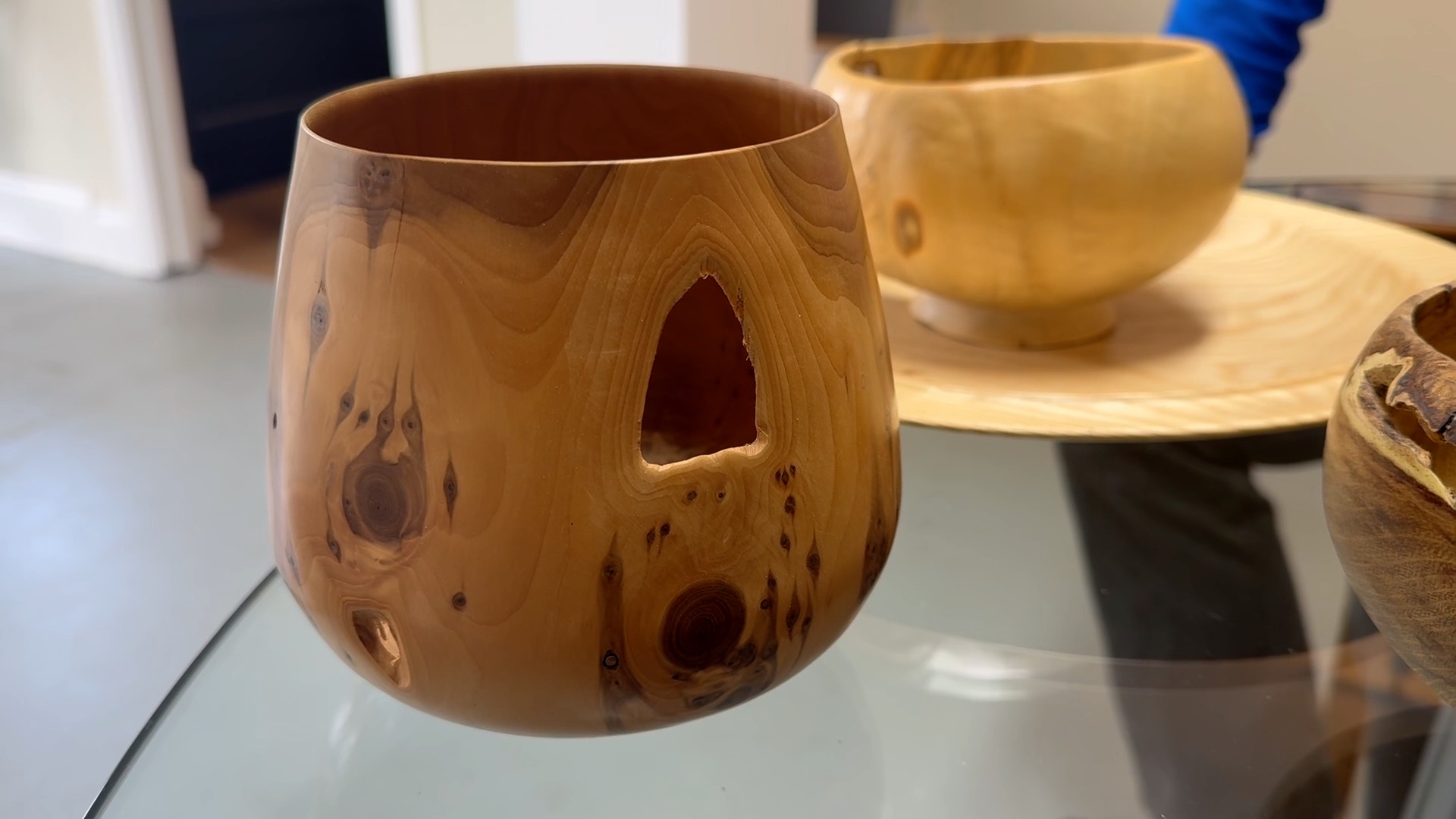
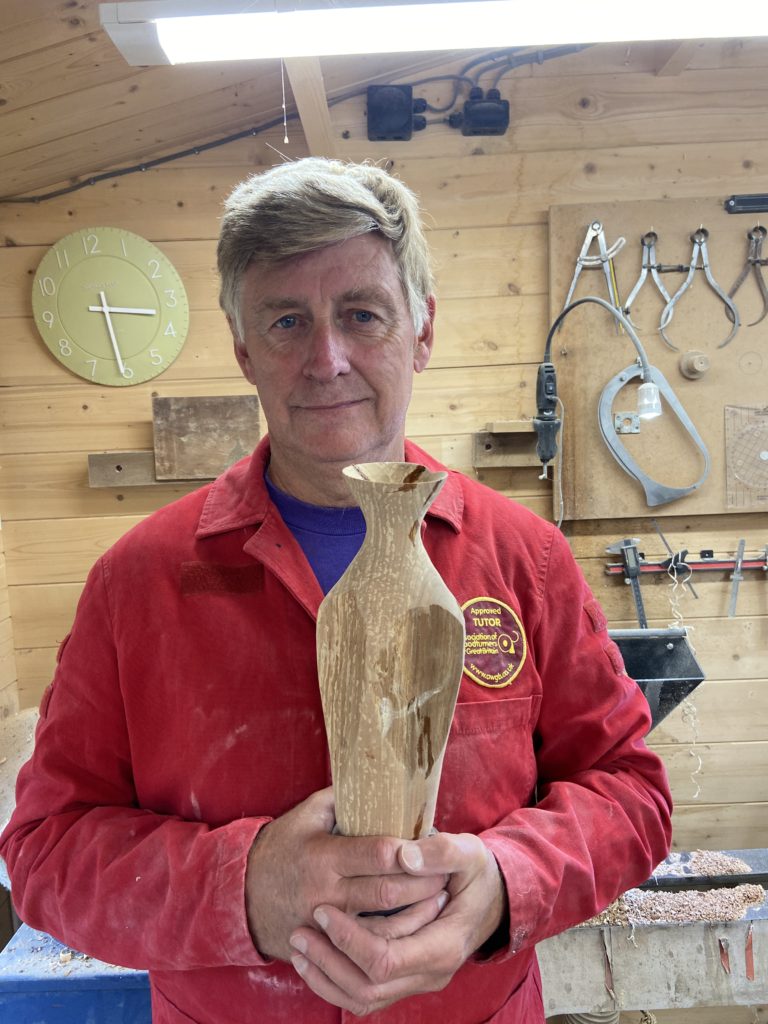
I started wood turning in 2018 when I was looking for a hobby after 35 years as a parachute instructor in the RAF. Leaving a structured, disciplined career, I was keen to explore any expressive, artistic leanings that may have been lurking in the depths of my psyche. I dusted off my late father’s ancient lathe and found a local tutor who was very patient with me. Now – 3 years later – I still have all my fingers and every day is a school day with new techniques and opportunities.
With so much waste and redundancy in the world, wherever possible, I use wood that has already had one life or has become available through a natural occurrence such as a storm or land clearance. No tree lasts forever and when it is time for it to be felled on safety grounds, I am there to gather whatever pieces I can. Other sources include reclamation yards where old gate posts and furniture can be upcycled into objects of beauty.
I go through phases where I turn a number of bowls then get the urge to make small, intricate boxes or candle sticks. The variety is always exciting and keeps my projects fresh.
Turning wet wood (anything recently felled) is always a joy. Watching ribbons of wood shavings coming off the lathe is great fun. Wet wood presents its own challenges, and a part turned bowl is often left for a few months to dry fully before I return to the project to finish it off.
Glynn Allcock – from parachute instructor to woodturner
Serving your country, you learn certain things fairly quickly; orders are there for a good reason and if you follow them you won’t get into trouble. Even if you disagree with them, you usually don’t have time, capacity, or permission to do much about them.
Now woodturning is very different. It’s more about a set of guiding principles that have kept woodturners from losing fingers, enabling repeatable results and making items that people want to buy.
But what if the sudden freedom from military life makes you realise that, for the first time in your life, you can choose to make your own rules, explore new ways and learn from your frequent mistakes?
Then you set off on a journey of freedom where you can create beautiful things from storm-felled trees, reclaimed beams and unloved furniture.
Whilst I make many pieces based on my own inspirations, there is no greater pleasure than working with someone who wants to make a memory of a loved one from their own wood; often a tree that they used to climb as a child or sit under with their parents.
Of course, the other great freedom in my change of career is working when inspired rather than when you have to. However, because woodturning is so pleasurable, that means I am seldom out of the workshop.
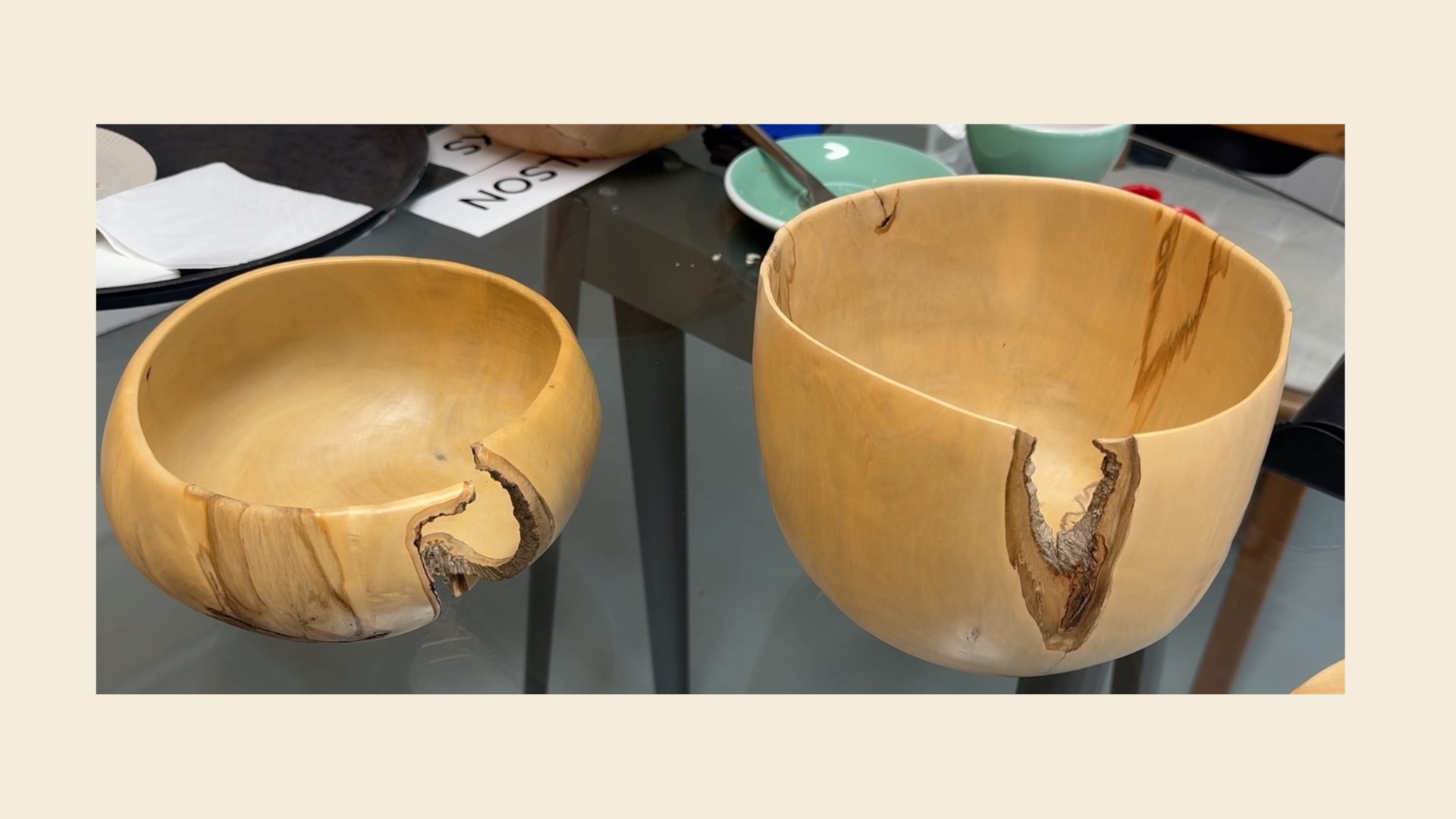
Holly Bowl Pair
£150
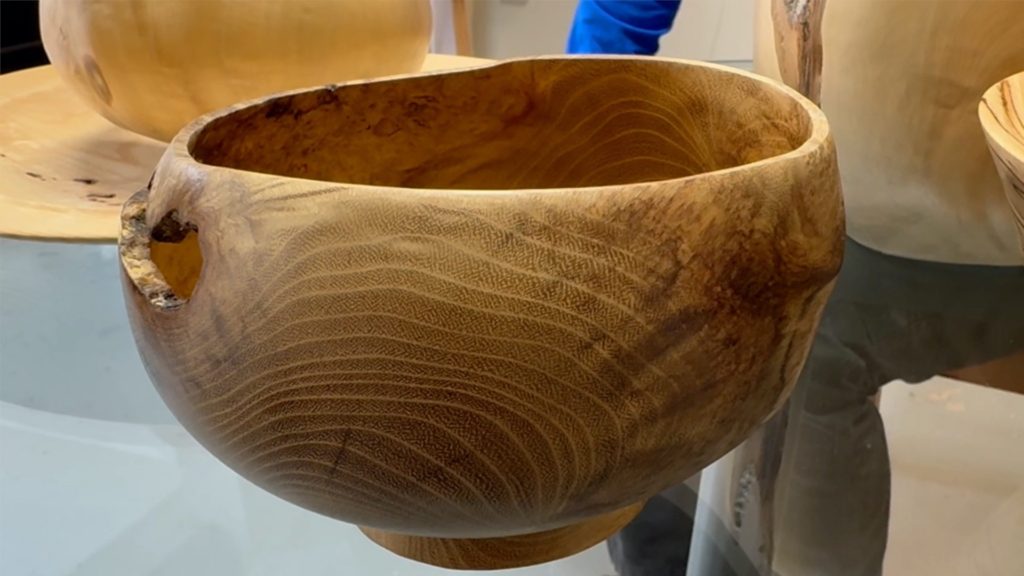
Robinia Bowl
SOLD
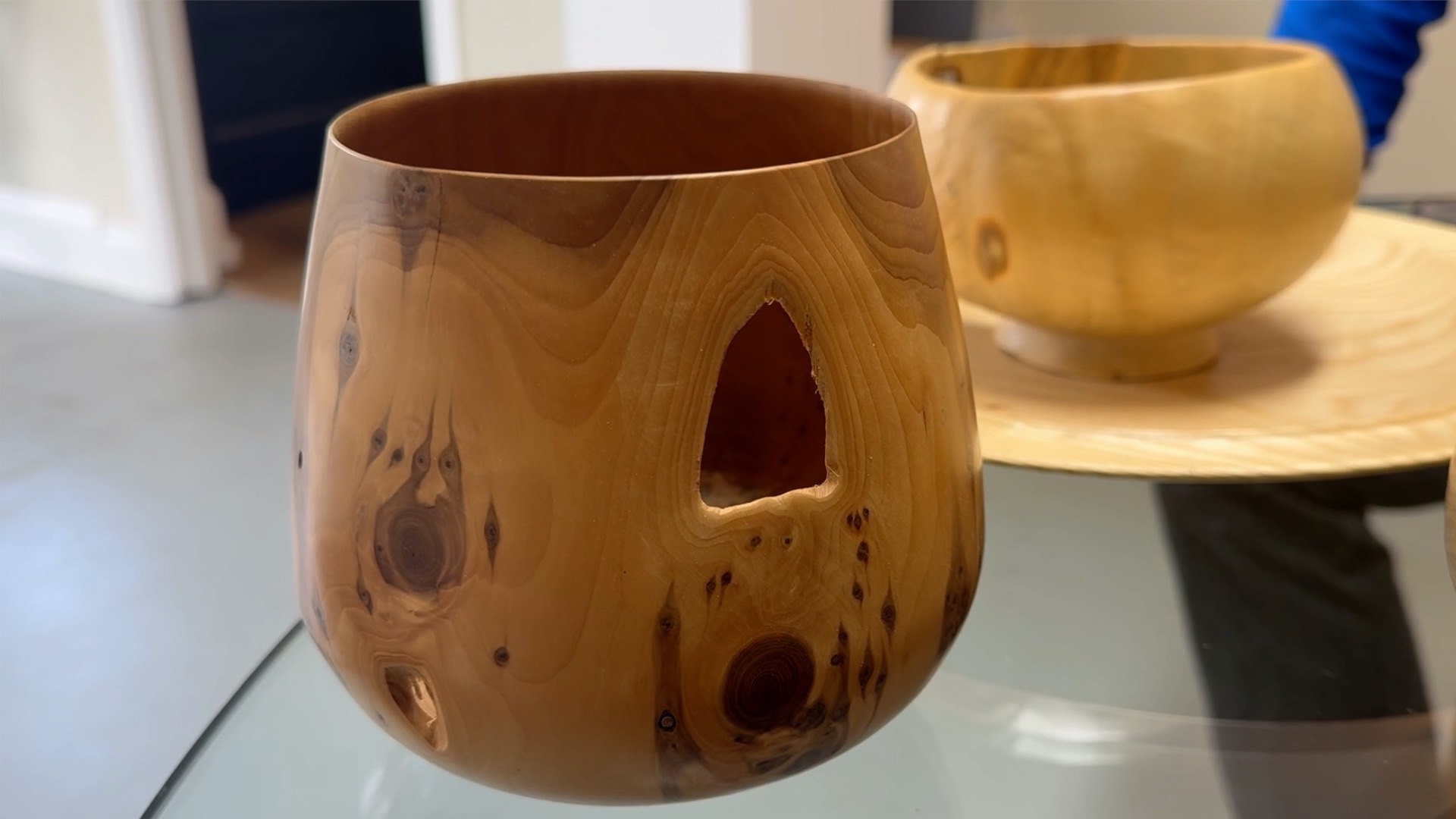
Yew Bowl
£80
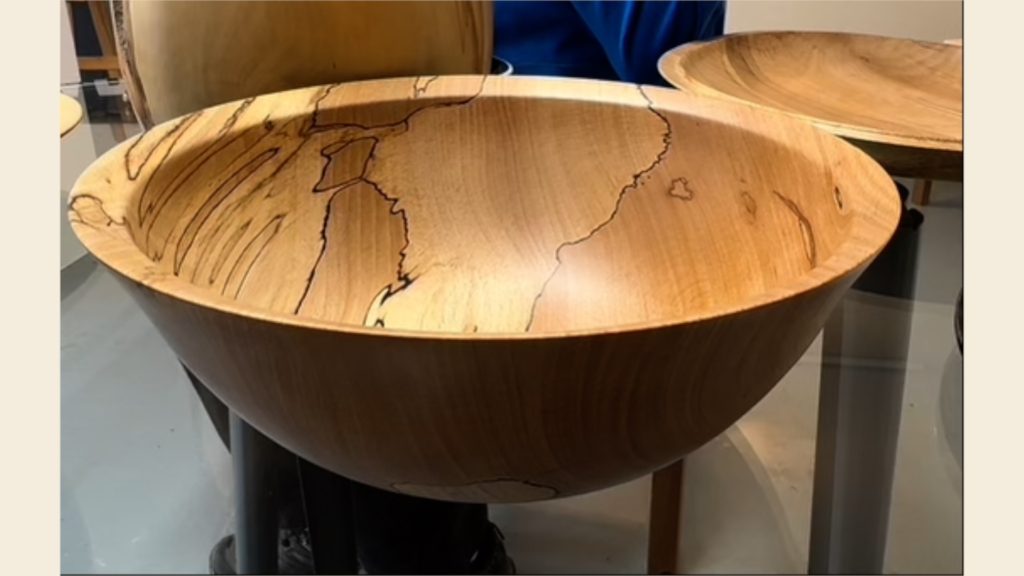
Spalted Beech Bowl
£75
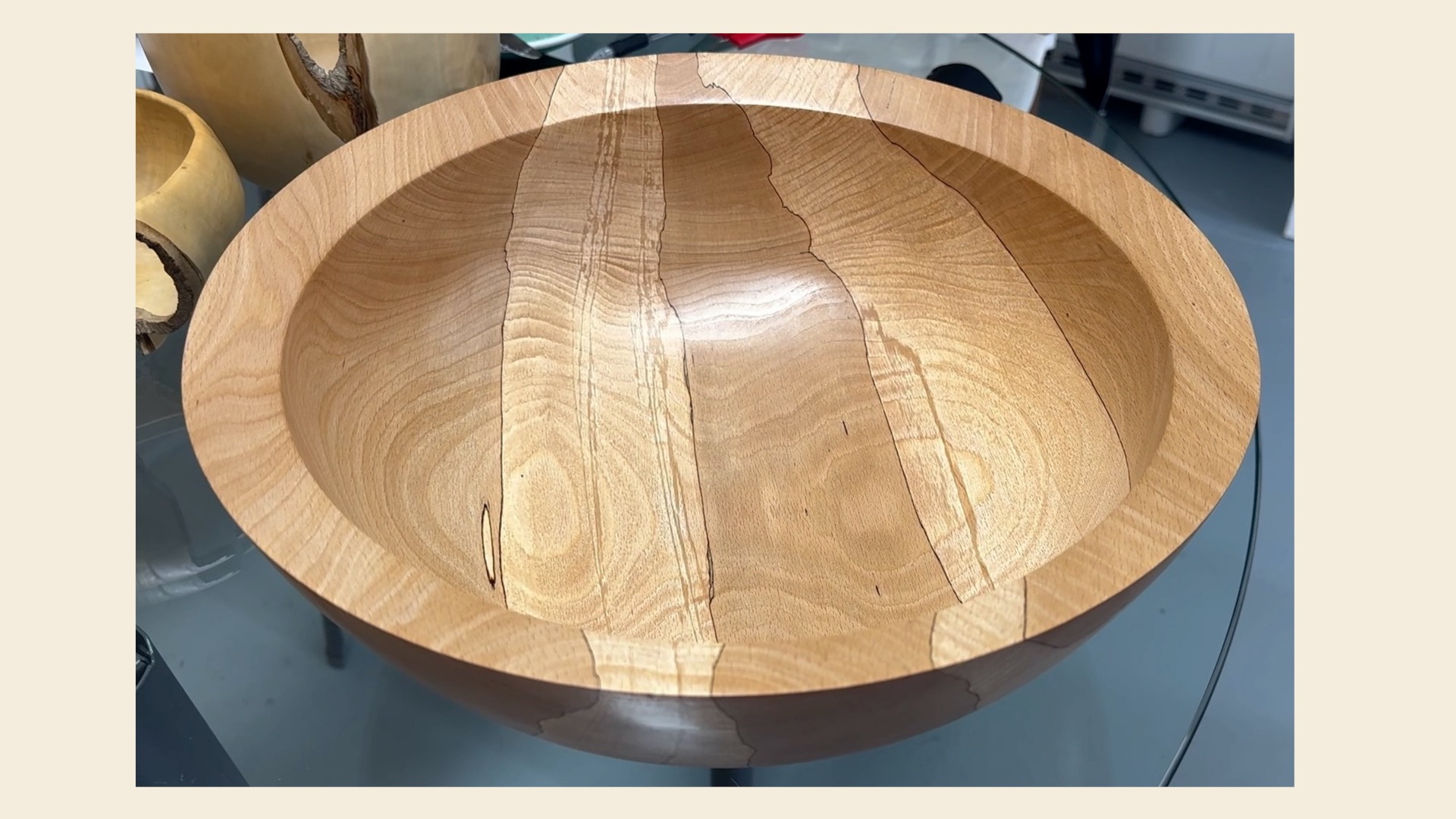
Large Spalted Beech Bowl
£150
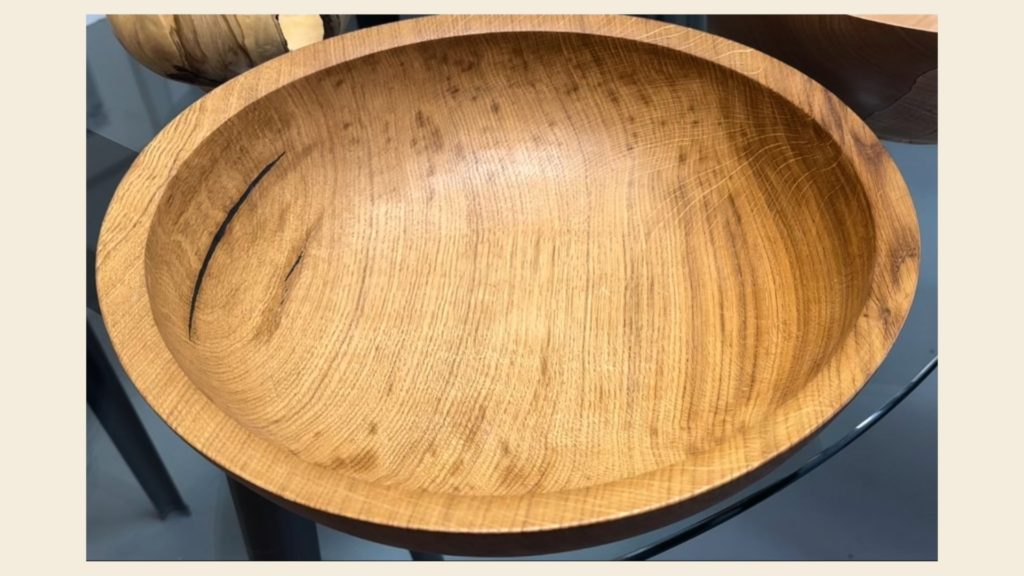
Oak Bowl
£150
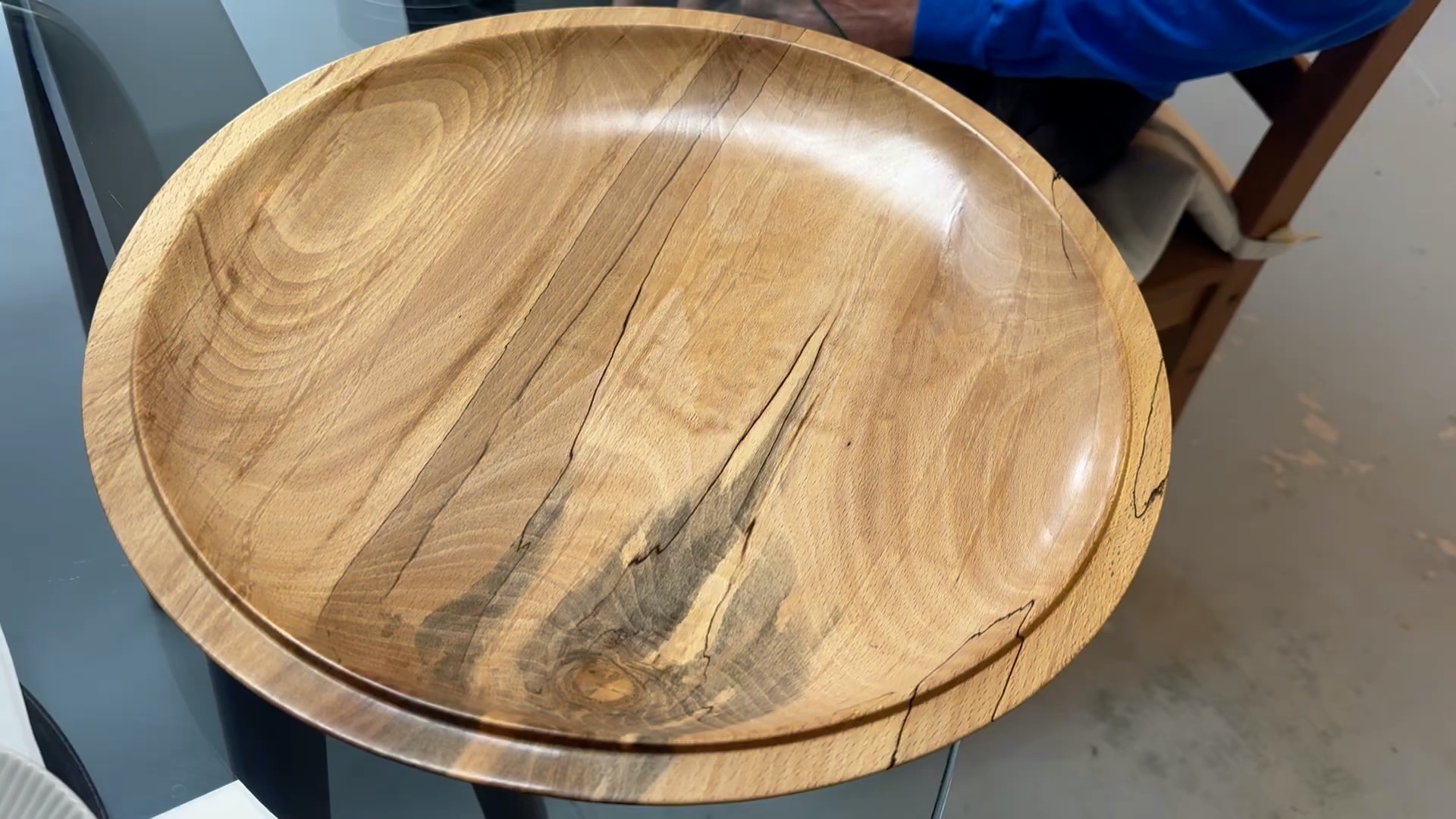
Spalted Beech Platter
£100
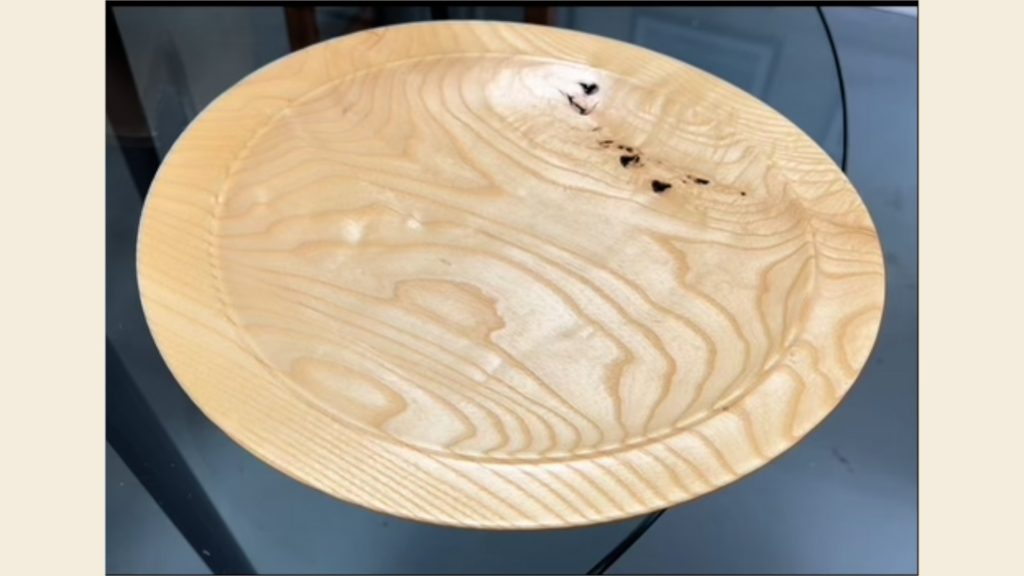
Ash Platter
£80